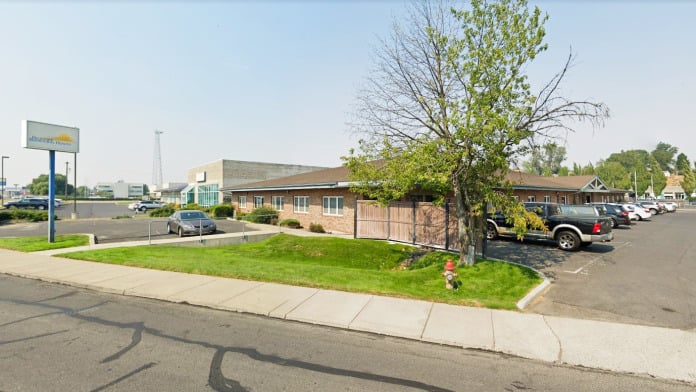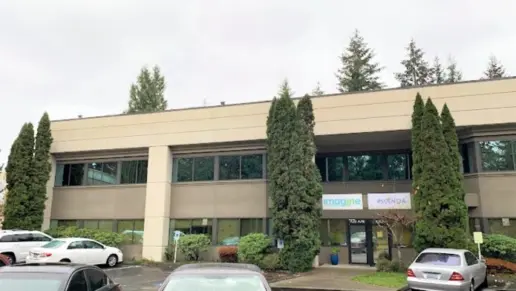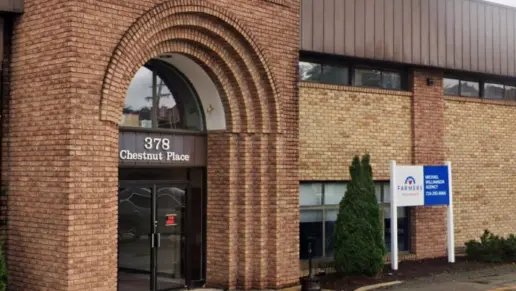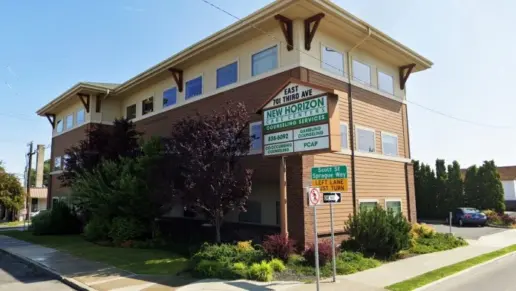Everyone in this place is very polite, they make me feel safe. The staff treated me patiently and helped me to regain confidence in myself, I felt with the confidence to speak openly about my problems, they gave me the help I needed at the right time. Thanks to them I feel 1 ...
About Frontier Behavioral Health – Foothills Evaluation
Frontier Behavioral Health’s Foothills Evaluation clinic provides inpatient care for adults who are experiencing a behavioral health crisis. It’s in Spokane, Washington. This is the place to go if you’re at risk of self harm you’re seriously disabled as a result of your condition. They also treat co-occurring conditions, including substance use disorder. They accept Medicaid, and a sliding fee scale is available.
At this facility, you’ll receive round the clock monitoring and support. Your care team will assess your condition, observe your symptoms, and provide crisis treatment services as needed. You don’t have to follow an exact timeline, but most people stay in this program for about six to eight days.
Some of the services you can receive while you’re on site include medication management, psychotherapy and life skills training. They also offer individualized educational programs, peer support, nutritional counseling, therapy dog visits and nursing care. I like that you can use their exercise facilities and outdoor courtyards to move your body while you heal your mind. Before you leave, they’ll refer you to other sources around the community where you can continue your recovery treatment.
While some former clients say that they received compassionate, professional care here, others have been frustrated by the team’s lack of communication.
 Payment Options
Payment Options
Medicaid
Private insurance
Self-pay options
Sliding scale payment assistance
Medicare
Military insurance
 Levels of Care
Levels of Care
 Inpatient
Inpatient
Residential treatment programs are those that offer housing and meals in addition to substance abuse treatment. Rehab facilities that offer residential treatment allow patients to focus solely on recovery, in an environment totally separate from their lives. Some rehab centers specialize in short-term residential treatment (a few days to a week or two), while others solely provide treatment on a long-term basis (several weeks to months). Some offer both, and tailor treatment to the patient's individual requirements.
 Programs
Programs
 Adult Program
Adult Program
Seniors Program
 Hearing Impaired Program
Hearing Impaired Program
 Young Adult Program
Young Adult Program
 Treatment
Treatment
 Dual Diagnosis
Dual Diagnosis
Many of those suffering from addiction also suffer from mental or emotional illnesses like schizophrenia, bipolar disorder, depression, or anxiety disorders. Rehab and other substance abuse facilities treating those with a dual diagnosis or co-occurring disorder administer psychiatric treatment to address the person's mental health issue in addition to drug and alcohol rehabilitation.
 Mental Health
Mental Health
Mental health rehabs focus on helping individuals recover from mental illnesses like bipolar disorder, clinical depression, anxiety disorders, schizophrenia, and more. Mental health professionals at these facilities are trained to understand and treat mental health issues, both in individual and group settings.
 Clinical Services
Clinical Services
 Cognitive Behavioral Therapy
Cognitive Behavioral Therapy
Cognitive Behavioral Therapy (CBT) is a therapy modality that focuses on the relationship between one's thoughts, feelings, and behaviors. It is used to establish and allow for healthy responses to thoughts and feelings (instead of unhealthy responses, like using drugs or alcohol). CBT has been proven effective for recovering addicts of all kinds, and is used to strengthen a patient's own self-awareness and ability to self-regulate. CBT allows individuals to monitor their own emotional state, become more adept at communicating with others, and manage stress without needing to engage in substance abuse.
 Dialectical Behavior Therapy
Dialectical Behavior Therapy
Dialectical Behavior Therapy (DBT) is a modified form of Cognitive Behavioral Therapy (CBT), a treatment designed to help people understand and ultimately affect the relationship between their thoughts, feelings, and behaviors. DBT is often used for individuals who struggle with self-harm behaviors, such as self-mutilation (cutting) and suicidal thoughts, urges, or attempts. It has been proven clinically effective for those who struggle with out-of-control emotions and mental health illnesses like Borderline Personality Disorder.
 Experiential Therapy
Experiential Therapy
Experiential therapy is a form of therapy in which clients are encouraged to surface and work through subconscious issues by engaging in real-time experiences. Experiential therapy departs from traditional talk therapy by involving the body, and having clients engage in activities, movements, and physical and emotional expression. This can involve role-play or using props (which can include other people). Experiential therapy can help people process trauma, memories, and emotion quickly, deeply, and in a lasting fashion, leading to substantial and impactful healing.
 Group Therapy
Group Therapy
Group therapy is any therapeutic work that happens in a group (not one-on-one). There are a number of different group therapy modalities, including support groups, experiential therapy, psycho-education, and more. Group therapy involves treatment as well as processing interaction between group members.
 Individual Therapy
Individual Therapy
In individual therapy, a patient meets one-on-one with a trained psychologist or counselor. Therapy is a pivotal part of effective substance abuse treatment, as it often covers root causes of addiction, including challenges faced by the patient in their social, family, and work/school life.
Nutrition Therapy
Nutrition therapy, aka medical nutrition therapy (MNT), is a way of treating physical, emotional, and medical conditions through diet. Specific dietary plans are designed by professional nutritionists or registered dietitians, and patients follow them in order to positively affect their physical and mental health.



